
Visually inspired by retro aesthetics, my work encompasses a central focus on social causes using design as a transformative tool for change. Every project I undertake is an opportunity to empower and nurture a more compassionate, inclusive society.
Final Project
Community Lines
‘Community Lines’ is an impactful campaign addressing the intertwined issues of county lines and knife crime.The Community Lines campaign employs a range of powerful visual tools, including posters, billboards, and a digital leaflet, to educate, inform, and support the target audience. Drawing inspiration from Dadaism and grunge aesthetics, my designs utilise thought-provoking compositions and a gritty, distressed style, to create a provocative and impassioned range of outcomes.
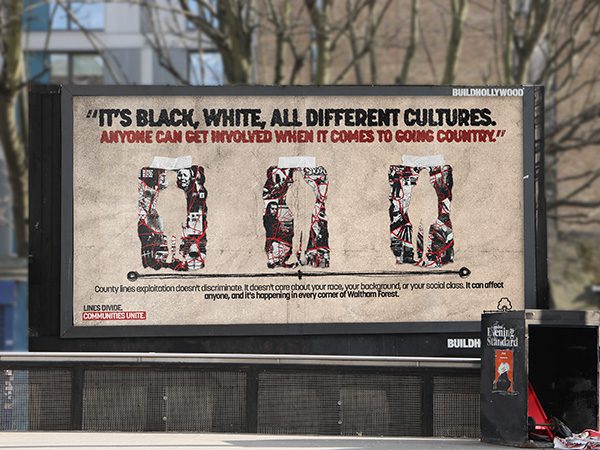
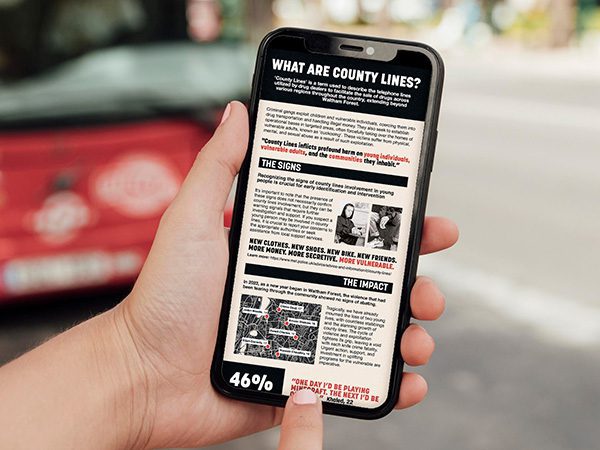
Campaign Insight
The heart of the campaign lies within the Waltham Forest community, aptly reflected in its name, ‘Community Lines’. The campaign recognises the diverse backgrounds of those susceptible to exploitation, as well as the collateral effects on other community members. Waltham Forest, a borough on the outskirts of East and North-East London, has become a hotspot for county lines operations due to its strategic location, transportation accessibility, and gang distribution.
“Community Lines” is born out of a pressing need to address the critical issues of county lines and knife crime in Waltham Forest. This initiative is driven by the challenging socio-economic conditions prevalent in London suburbs, characterised by deprived neighbourhoods and the lingering effects of austerity measures. The creation of this project coincided with the loss of two young boys in Waltham Forest: Chima Osuji aged 17, and Renell Charles, aged 16. These tragic incidents serve as a somber reminder of the urgency and significance of this campaign.
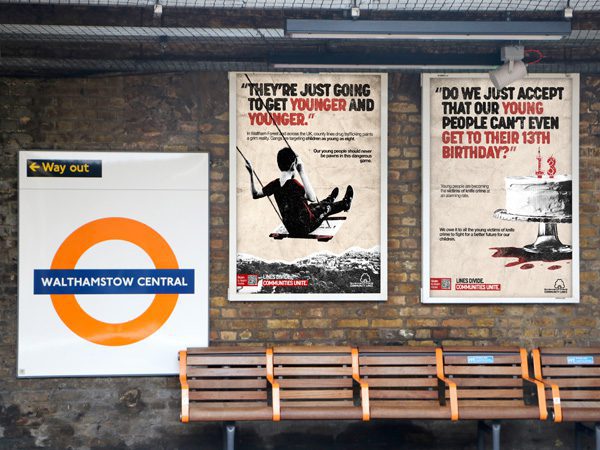
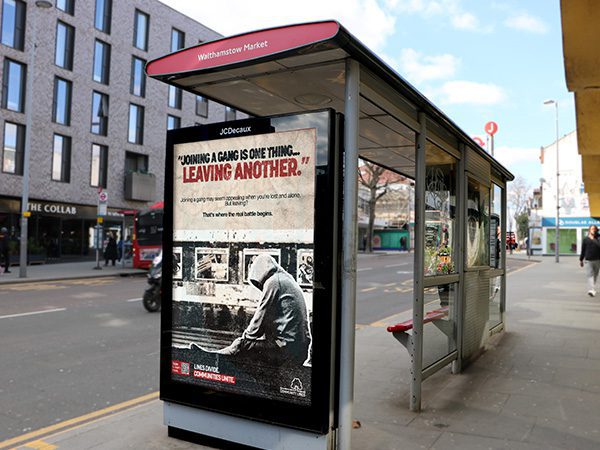
Compelling case studies showcase the perspectives of those directly impacted, including victims, perpetrators, and their families and friends. ‘Lines’ symbolically traverse the community, highlighting local effects.
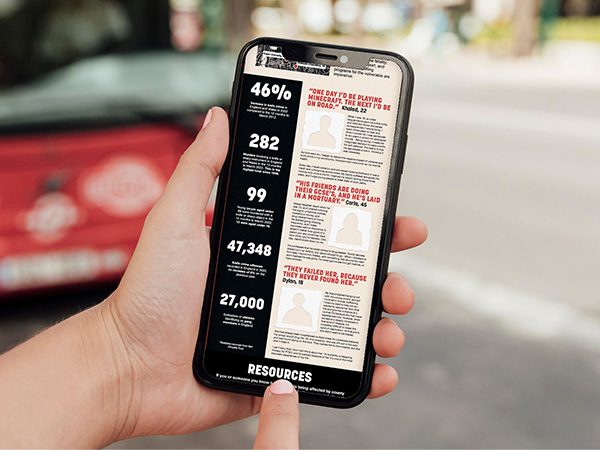
The primary goal is to raise community awareness, fostering a supportive environment where individuals confidently seek help from fellow members. The campaign challenges the community’s empathy gap towards these youth, recognising coercion and victimisation. It strives to build a united, compassionate community acknowledging underlying factors influencing their involvement.
Journey to the Show
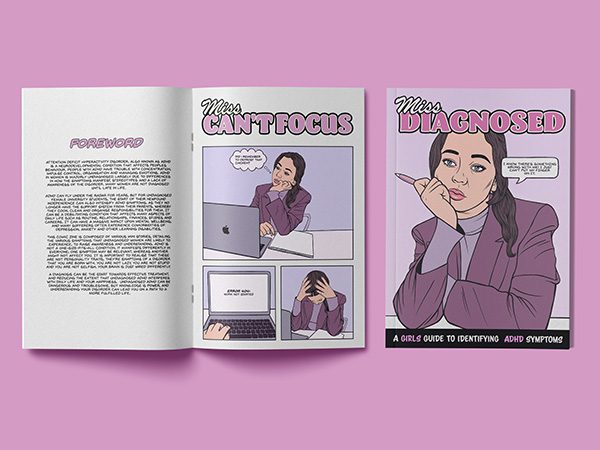
Miss Diagnosed is a comic zine shedding light on ADHD symptoms in women, specifically targeting the age group of 18-24. Addressing the common misconception that ADHD is a male condition, the zine highlights the underrepresentation and under-diagnosis of women. With a focus on female university students, the comic explores how newfound independence can amplify symptoms and the challenges of navigating unhealthy coping mechanisms like alcohol.
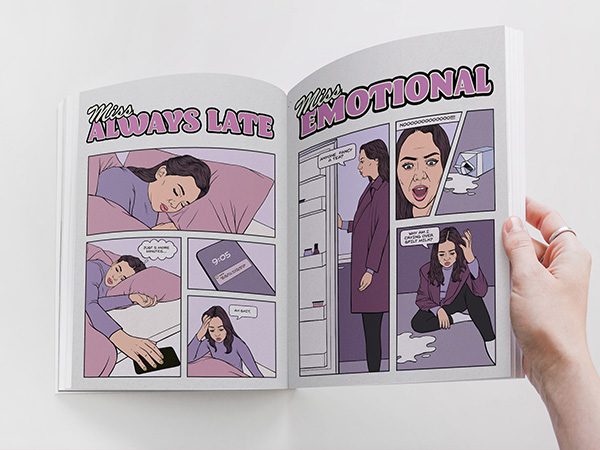
The zine employs a comic format, using illustrations and minimal dialogue to cater to the unique cognitive style of ADHD brains. Embracing the imaginative and visual thinking characteristic of ADHD, the visually stimulating comic aesthetic serves as an engaging guide. Relatable scenarios like oversleeping lectures and forgetting identification for a club night forge a personable connection with the audience.
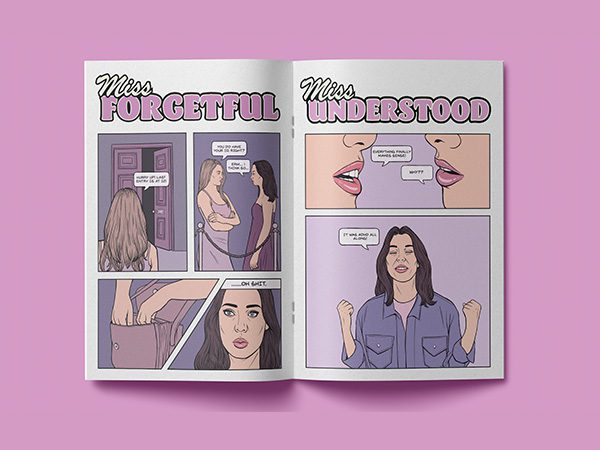
Miss Diagnosed strives to offer a lifeline to undiagnosed women who may lack awareness of ADHD as a disorder, leaving them without an explanation or solution for their behaviour. By equipping them with essential knowledge, the zine aims to guide them towards seeking a diagnosis and necessary treatment. It serves as a gentle push for these women to reach out for the support they deserve.
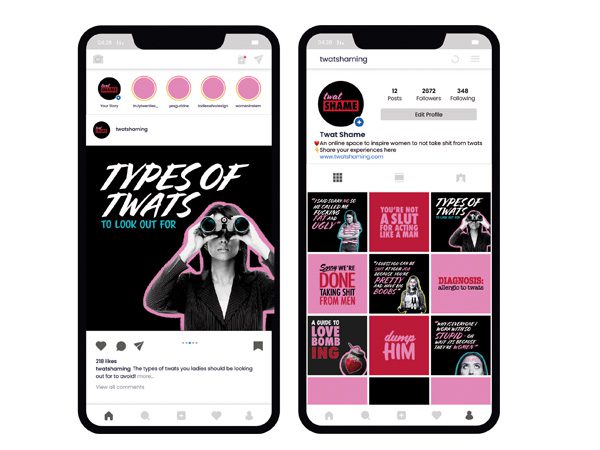
Twat Shaming is an empowering online platform for women, providing a space to address negative encounters with men in daily life. Featuring affirmations, advice, information, and shared stories, it offers catharsis and the opportunity for women to share their own experiences.
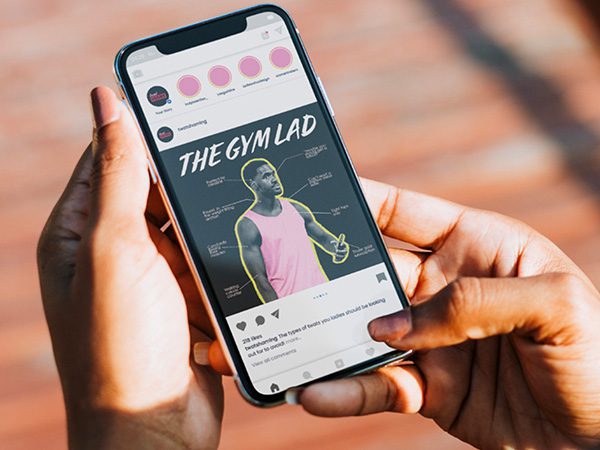
Women face many problems and challenges that are rarely highlighted in a male dominated society. Myths such as there is no sexism are constantly perpetuated, alongside the excusal for mens poor behaviour as ‘banter’ have a profound impact upon womens self-esteem and their mental wellbeing. Misogyny is still widespread, and women need an outlet of release for their experiences, without the interference of men.
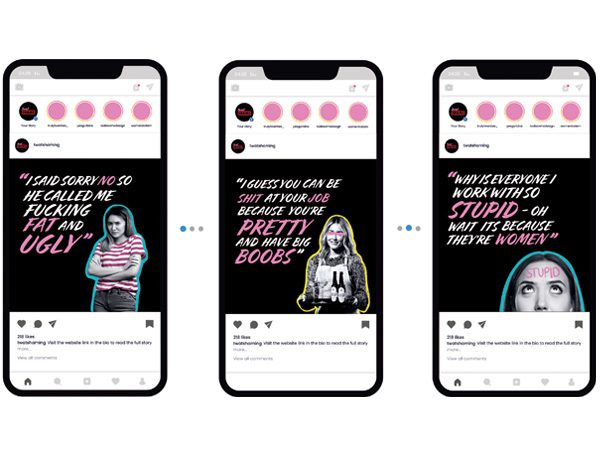
Twat Shaming aims to provide women with a safe space to express and share their frustrations. Through its educational platform, it equips women with the confidence and knowledge to navigate and escape situations of misogyny and mistreatment. The platform is dedicated to inspiring and uplifting women, fostering a sense of empowerment.
Visionary Thinkers
Visionary Creators
Visionary Makers